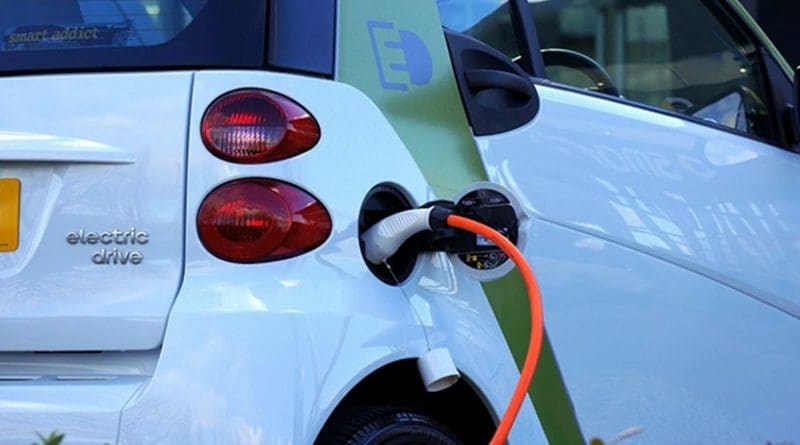42 Global Organizations Agree On Guiding Principles For Batteries To Power Sustainable Energy Transition
Batteries will be a major driver in reducing the carbon footprint of the transport and power sectors through the use of electric vehicles and renewable energy. To help companies and governments, the Global Battery Alliance designed 10 guiding principles for the creation of a sustainable battery chain by 2030.
These principles are intended as the first step in a responsible, sustainable battery value chain as set out in the Global Battery Alliance’s “A Vision for a Sustainable Battery Value Chain in 2030“.Implementing commitments will be based on existing standards such as the Organisation for Economic Co-operation and Development (OECD)’s Due Diligence Guidance and economically viable considerations for a circular and low carbon economy.
At the Annual Meeting 2020, 42 organizations, including businesses from mining, chemicals, battery, automotive and energy industries, representing annual revenue of close to a trillion dollars, along with international organizations and global NGOs, have agreed on the 10 guiding principles.
They include maximizing the productivity of batteries, enabling a productive and safe second life use, circular recovery of battery materials, ensuring transparency of greenhouse gas emissions and their progressive reduction, prioritizing energy efficiency measures and increasing the use of renewable energy, fostering battery-enabled renewable energy integration, high quality job creation and skills development, eliminating child and forced labour, protecting public health and the environment and supporting responsible trade and anti-corruption practices, local value creation and economic diversification.
“We all need batteries to power the clean revolution. However, we must ensure violations of human rights do not occur anywhere in the value chain, that local communities benefit and that battery production is sustainable. These guiding principles are an important first step to build a value chain that can deliver on this promise while supporting societies and economies at the same time”, said Dominic Waughray, Managing Director, World Economic Forum.
Organizations supporting the realization of a battery value chain that meets these principles include AB Volvo, African Development Bank, Amara Raja Batteries , Analog Devices, Audi, BASF, Bayerische Motoren Werke (BMW), Cadenza Innovation, China EV100, Clarios, ClimateWorks Foundation, Enel, Envision Group, Eurasian Resources Group (ERG), Everledger, Fairphone, Fundacion Chile, Good Shepherd International Foundation, Greentech Capital Advisors, Groupe Renault, Honda, IMPACT, International Institute for Environment and Development (IIED), International Justice Mission (IJM), Johnson Matthey, International Lead Association (ILA), Leaseplan, Office of the President of the Democratic Republic of the Congo (DRC), OPTEL Group, Pact, Pure Earth, Responsible Battery Coalition, SGS, SK Innovation, Sociedad Química y Minera de Chile SA (SQM), The Faraday Institution, The World Bank Group, Trafigura, Transport & Environment (T&E), Umicore, United Nations Children’s Fund (UNICEF), the Volkswagen Group and the World Business Council for Sustainable Development (WBCSD). To realize the full ambition of these principles, the Global Battery Alliance is actively seeking the endorsement of additional organizations to ensure full participation throughout the battery value chain.
This alignment among key players in the battery market establishes the basis for a transparent accountability system. It will guide the development of a global digital battery information disclosure system referred to as the “Battery Passport”, which is designed to enable a transparent value chain, for example, with respect to human rights and the environmental footprint.

